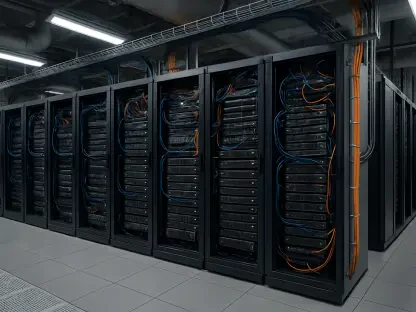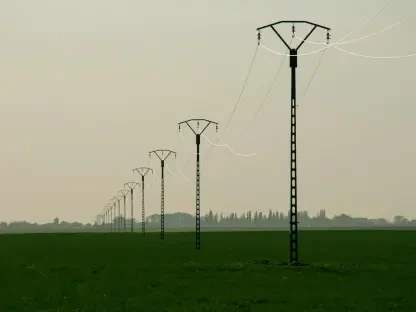In the serene rural expanse of McCalla, Alabama, a profound conflict is unfolding over a proposed $14.5 billion initiative dubbed the Bessemer Hyperscale Data Center, also known as “Project Marvel.” This ambitious plan, spearheaded by Logistics Land Investment LLC, seeks to convert nearly 700 acres of wooded land near the communities of Rock Mountain Lakes and Red Mountain Heights into a sprawling complex of 18 data center buildings. However, for the tight-knit residents of this unincorporated area of Jefferson County, the project represents far more than an economic opportunity—it poses a direct threat to their cherished way of life, steeped in generations of history and connection to the land. The tension brewing here is not merely a local dispute but a reflection of a broader national struggle as rural communities grapple with the encroachment of tech-driven development fueled by the demands of artificial intelligence (AI) and cloud computing.
This clash in McCalla underscores a critical question facing small towns across the United States: how to balance the promise of economic revitalization with the preservation of community identity and natural resources. The emotional stakes are palpable, as long-standing residents voice fears of losing their heritage to a wave of industrialization they feel powerless to stop. Meanwhile, environmental concerns and a troubling lack of transparency from local officials further complicate the debate, leaving many to wonder if the benefits of such projects truly outweigh the costs. As this story unfolds, it becomes clear that McCalla’s fight is emblematic of a growing resistance to the unchecked expansion of data centers in rural America.
Voices from the Heart of McCalla
Roots Deep in the Soil
The resistance in McCalla is deeply personal, driven by a profound attachment to the land that many families have called home for generations. In the areas of Red Mountain Heights and Rock Mountain Lakes, the landscape of Longleaf pines and quiet lakes isn’t just a backdrop—it’s a repository of memories and identity. Residents like David Havron, who leads the Rock Mountain Lakes Landowner’s Association, speak of childhoods spent exploring nearby waters and building lives intertwined with the natural beauty around them. This connection fuels a visceral opposition to the idea of a massive data center disrupting their rural paradise. The thought of losing this legacy to clear-cut land and industrial sprawl strikes at the core of what many hold dear, transforming a development proposal into a battle for the soul of their community. It’s not merely about property lines but about preserving a way of life that feels increasingly rare in a world dominated by technological progress.
Beyond individual stories, the collective history of McCalla adds weight to the resistance. Many families have inherited their land through decades, passing down not just deeds but a sense of stewardship over the environment. The prospect of Project Marvel, with its 100 acres of planned construction, feels like an erasure of that heritage. The emotional toll is evident in community gatherings where voices tremble with both anger and nostalgia, recounting tales of simpler times before the shadow of industrialization loomed large. This shared narrative of loss and defiance unites residents, turning personal grievances into a communal stand against what they perceive as an existential threat. Their fight isn’t just against a data center but against the broader forces of change that seem to prioritize profit over people and place.
Defiance in the Face of Change
The community’s pushback against Project Marvel is marked by determined grassroots efforts that mirror a national wave of resistance to similar tech projects. From organizing through local associations to staging protests outside Bessemer City Hall, McCalla’s residents are making their voices heard despite feeling marginalized by the decision-making process. Individuals like 80-year-old Marshall Killingsworth embody this spirit of defiance, standing alone with signs of protest to remind officials of the human cost of their plans. These actions, though small in scale, carry significant weight, drawing attention to the broader implications of such developments on rural life. They also connect McCalla to struggles in places like Memphis, where air pollution from tech facilities threatens historically marginalized neighborhoods, and northern Virginia, where incessant noise from cooling systems disrupts daily life.
This grassroots movement is not without its challenges, as residents often find themselves up against powerful entities with resources far beyond their own. Public hearings in Bessemer have revealed deep frustration, with community members limited by strict speaking rules and a sense of being unheard by those in power. Yet, the persistence of these efforts highlights a growing awareness among small towns that their concerns matter in the face of global tech expansion. Support from allies such as Jefferson County Commission President Jimmie Stephens and environmental groups like Black Warrior Riverkeeper adds legitimacy to their cause, amplifying their call for accountability. McCalla’s defiance serves as a microcosm of a larger trend, where rural communities are no longer willing to silently accept the collateral damage of progress, demanding instead a seat at the table where their future is decided.
Weighing Progress Against Preservation
Economic Hopes Clouded by Doubt
Bessemer’s leadership views Project Marvel as a potential lifeline for a city that has long struggled with the aftermath of deindustrialization. Once known as “The Marvel City” for its booming steel industry, Bessemer has faced decades of economic decline and job losses, leaving a void that officials hope this $14.5 billion investment can fill. The promise of hundreds of temporary construction jobs alongside a smaller number of permanent positions paints a picture of revitalization that could reshape the city’s future. Proponents argue that such a massive influx of capital could stimulate local businesses and infrastructure, offering a much-needed boost to a region desperate for growth. This vision of economic renewal is a powerful draw, especially in a community where opportunities have dwindled over time, positioning the data center as a beacon of hope for a brighter tomorrow.
However, beneath the surface of these promises lies a thick layer of skepticism among McCalla residents and even some local observers. Alabama’s generous tax incentives for data centers, which include property tax abatements for up to 30 years and sales tax relief on construction materials, raise serious questions about the net benefit to the public. Without transparent details on mechanisms like Payments in Lieu of Taxes (PILOT) agreements, there’s a lingering fear that the financial burden will fall on the community while corporations reap the rewards. The opacity surrounding the project’s economic impact only deepens this distrust, as residents wonder if the jobs created will be accessible to locals or if the benefits will be siphoned off by external entities. This uncertainty transforms the narrative of economic salvation into one of potential exploitation, leaving many to ponder whether the price of progress is worth paying.
Environmental and Social Sacrifices
The environmental implications of Project Marvel are a significant point of contention, casting a shadow over any economic optimism. Public documents suggest the data center could consume a staggering 10.5 million megawatt hours of energy annually at full capacity, increasing Alabama’s total energy output by roughly 10%. Additionally, the facility may require up to two million gallons of water daily for cooling systems and power generation, raising alarms about the strain on local resources. Residents fear depleted groundwater levels could lead to dry wells for both household and agricultural use, while waterways like Little Blue Creek and the Black Warrior River might suffer diminished flows. Environmental groups, including Black Warrior Riverkeeper, have highlighted these risks, pointing to the broader ecological disruption that such resource-intensive projects often bring to rural areas already vulnerable to change.
Equally troubling is the potential impact on local wildlife, with the endangered Birmingham darter—a recently discovered freshwater fish—standing as a poignant symbol of what could be lost. The destruction of critical habitats due to land clearing and water usage poses a direct threat to such species, underscoring the delicate balance of the region’s ecosystem. Beyond the natural world, the social fabric of McCalla faces disruption as well, with the rural tranquility that defines the community at risk of being replaced by industrial noise and activity. The trade-offs here are not just environmental but deeply human, as the potential loss of a peaceful way of life weighs heavily on residents. This clash between short-term economic gains and long-term sustainability frames McCalla’s struggle as a critical case study in the cost of technological advancement, prompting a reevaluation of how progress is measured against the well-being of both people and the planet.
Reflecting on a Community’s Stand
Lessons from a Rural Resistance
Looking back, the resistance mounted by McCalla’s residents against Project Marvel revealed the profound strength of community bonds when faced with existential threats. Their fight was not merely about stopping a data center but about asserting the value of their history and environment in a world increasingly driven by technological imperatives. Personal stories of connection to the land, amplified by organized protests and public outcry, painted a vivid picture of a small town unwilling to be steamrolled by corporate interests. This stand, supported by local leaders and environmental advocates, underscored the importance of listening to those most affected by development decisions. The emotional and cultural stakes in McCalla served as a powerful reminder that progress cannot be divorced from the people it impacts, setting a precedent for how rural voices demanded to be heard.
Charting a Path Forward
As the dust settled on public hearings and legal challenges, the path ahead for McCalla and similar communities became a matter of finding equilibrium between growth and preservation. Moving forward, it’s imperative for policymakers and developers to prioritize transparency, ensuring that projects like these are accompanied by clear, accessible information on resource use, economic benefits, and environmental safeguards. Engaging communities early through inclusive dialogue could prevent the deep mistrust that characterized this conflict, fostering instead a collaborative approach to development. Additionally, exploring alternative sites that minimize impact on residential and natural areas should be a key consideration, alongside stricter regulations on resource consumption by hyperscale facilities. McCalla’s experience offers a blueprint for how to navigate the intersection of technology and tradition, urging stakeholders to balance innovation with the imperative to protect vulnerable ecosystems and ways of life for generations to come.









